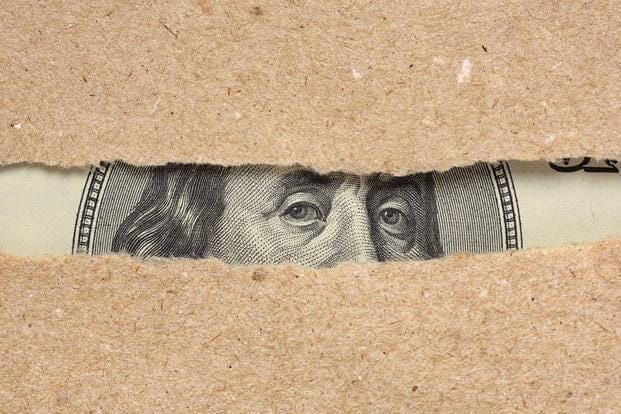I can’t write a single post about the complexities of money. I can barely scratch the surface.
Money has caused such heartbreak and worry and brought so little joy. But it’s not going away, is it?
I was never in a household where money hung over our lives like the notorious pendulum in Poe’s pit. Where every cent counted. Where debts determined the emotional weather and consistently darkened the atmosphere. Later, I knew families who had chronic money problems, and I realized how ignorant I was about money. I witnessed the struggle and the worry. I saw how unforgiving money is.
Not having much money as a young man in my twenties, blithely on my own, was not a problem. That’s the way I lived in the East Village of New York City in the 1970s. Cheaply and well. I had everything I needed. I never really thought about what I didn’t have. When you’re young, you don’t need much to enjoy life.
That changed when I got married. My wife and I had a daughter. We needed things for her that cost money. Doctors, school, clothes, food. I had a passion to be a writer, but that has about as much chance of providing a reliable income as gambling on horses. Fortunately, my wife had a decent, steady income. We were like many married couples. We worried about money, but we covered the expenses—sometimes barely, but we did.
Then we divorced.
In New York, when I was a divorced dad and had a child to help support, I came up short on occasion. My jobs—guidebook writer, librarian, writing teacher, adjunct, dictionary editor—never brought in a lot of money. I always paid child support, but sometimes that made me unable to pay rent or the interest on credit cards I had maxed out. I had no savings. Money kept me awake at night.
Needing help, I asked my sister for money. I imagine it’s hard for anyone to ask for money. I know it was for me. The body flushes, pride takes a hard fall. There is no way you can feel good about yourself when you ask for money as a grown man approaching, or in, middle age. But I had responsibilities, and I needed to honor them. I swallowed my pride. I asked. She didn’t hesitate.
I learned a few things being a borrower. A person who comes to you hat in hand has probably already beaten themselves up considerably. It may be wise to consider you might be in that position one day—life constantly shocks and surprises. It’s hard to imagine going through life without once encountering dire money problems.
With some people, you pay interest on the money you borrow, and that interest is not paid in cash. It’s in the form of letting you know, subtly or even overtly, that they’ve lent or given you money, in case you forget. They exact a kind of implied subservience. My sister is not capable of that. I’m lucky to have had her in my life as angel and protector. I’ve thought of her example when I’ve rarely been in the position to loan or give someone money. Her example helps quell the worst in me. And I assure you, it’s there.
“Money,” wrote the great 19th century French novelist, Honoré de Balzac, “has never yet lost the smallest opportunity of proving its own stupidity.” Balzac was intimately familiar with money and the lack of it. He lived in a house—now a museum—under an assumed name to avoid his creditors. He had many. He still managed to write those masterpieces, including Cousin Bette, from which that maxim about money’s stupidity is taken. Money is at the heart of so many of his books, exerting its calculating influence.
If you really want to see how stupid money is, observe any kind of inheritance where money is the central issue. Families can become unrecognizable. Bitterness, followed by plotting, emerges. Sides are taken. Money seeps through that situation like black ink on a paper towel, coloring decisions and responses darkly.
Back to M. Balzac. I was reading his book, Eugénie Grandet, recently, until I couldn’t. A main character is a miser, Eugénie’s father, who drives you crazy with every penny-pinching, or sou-pinching, gesture of his. Every morsel of food, every piece of firewood, every candle must be accounted for and justified. And, more often than not, the request is denied by M. Grandet. This tense, all-pervading tightwad-ness runs through every page, through every every sentence. Grandet’s brother, who lives in Paris, kills himself because his investments go awry, and he becomes bankrupt. Again—money! The book breathes money, sleeps money, eats money, dreams money, speaks money. After a while, I wanted to run, screaming from the book. And in fact, I did.
I take a bill out of my wallet. One dollar, five, ten or twenty. This innocuous paper! I remember seeing my father open his wallet when I was a kid and marveling at the slew of bills tucked in there. How rich he was, my dad! How magnificent to see all that green paper! Maybe someday I would have a wallet like his. It would be stuffed with tens and twenties and even bigger bills. I would have so much money I would never need more. I’m still waiting for that day.
I don’t want money to have the final word. But it’s a formidable and untiring adversary.





Wonderful post Richard! Huzzahs! Can it be converted into cash?!
Thanks, Richard. Great essay.